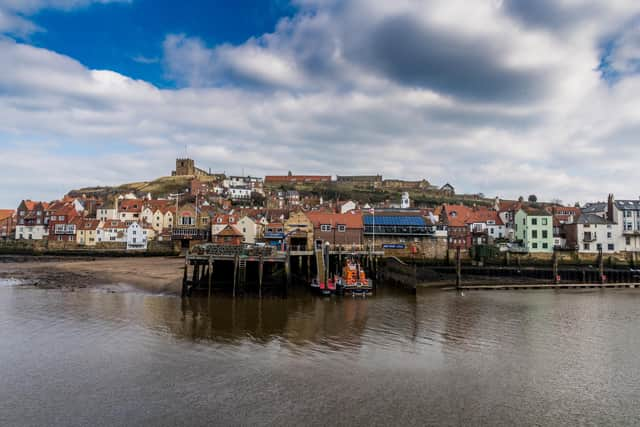Discover the 'enduring and changing role' of whales at Whitby Lifeboat Station event
and live on Freeview channel 276
Taking place in Whitby, Hull and online, the mix of in-person and virtual events will explore the role of whales in 400 years of regional heritage, from the whaling past to the living animals off the coast today.
Whale Week is in collaboration with key regional partners Yorkshire Coast Nature (YCN) and Hull Maritime and Charismatic Encounters' official project partners the World Cetacean Alliance.
Advertisement
Hide AdAdvertisement
Hide AdWorking with people and organisations responsible for the stewardship of and public engagement with living cetaceans and whaling history, the events highlight the enduring and changing role of whales, dolphins and porpoises in local lives and Yorkshire’s coastal and maritime heritage.


The first event will take place at the RNLI Lifeboat Station in Whitby on April 18 and is titled Fins and Feathers: Seabirds & Whales on the Yorkshire Coast with Yorkshire Coast Nature
Hosted at this historic maritime location at the heart of the old whaling port, join Yorkshire Coast Nature (YCN) Director and ecologist Richard Baines and Sean Baxter, local skipper and fisherman, to hear stories of whale watching in Staithes and other unique insights into Yorkshire's coastal heritage.Richard and Sean joined forces in 2014 to start running guided seabird and whale watching trips from the village of Staithes, North Yorkshire, where minke whales, bottlenose dolphins and other cetaceans can be seen.The event begins with an illustrated guide from Richard to the incredible whales, seabirds and other marine mammals on our coast through stories, photography and ecology.Followed by reflections from Sean on a lifetime in fishing at Staithes and overseas, and how it led to whale watching and life today.The event will raise money for the RNLI through donations (via tickets or on the night) – with all proceeds donated.
Richard is a qualified ecologist who grew up in North Yorkshire and has lifetime knowledge of natural history and enthusiasm, passing on his experience of wildlife and ecology to a wide range of people, and developing
Advertisement
Hide AdAdvertisement
Hide Adstrong conservation partnerships.He co-founded YCN, a small, independent nature tourism company offering wildlife experiences with highly trained, local guides.ean is a fisherman from Staithes and the skipper for YCN.He started fishing full-time in his teens in the 1970s, learning traditions from older generations before working around the world.
He now shares his knowledge about the sea and local history from the beach, boat and beyond.
Doors open at 6.30pm and the event starts at 7pm to register visit https://www.eventbrite.ie/e/fins-and-feathers-seabirds-whales-on-the-yorkshire-coast-tickets-523840199137
An online event on April 20 titled Whaling to Watching: Charismatic Encounters on Yorkshire & Basque coasts will be chaired by World Cetacean Alliance CEO Harry Eckman
Advertisement
Hide AdAdvertisement
Hide AdThe event will explore the role of whales and other cetaceans in the maritime and coastal heritage of two regions: the Yorkshire Coast and the Basque Country.
The event brings together researchers on Charismatic Encounters project, an Anglo-French collaboration funded by the AHRC and LabEX which has been partnered with the World Cetacean Alliance.
Dr Sophia Nicolov, University of Leeds, will discuss how oral histories can help shed light on the role of whales, dolphins and porpoises in Yorkshire's marine environment and heritage.
Sharing oral histories and other anecdotal testimony collected on the Yorkshire coast, Sophia highlights the vital role these sources can play in our understandings of past and present populations of cetaceans and their
Advertisement
Hide AdAdvertisement
Hide Admeanings to individuals and communities along this coastline.
Dr Fabien Clouette & Dr Jérémie Brugidou, LESC University Paris Nanterre/Les plans du Pélican, will reflect on the research and creation process for their feature-length documentary Le feu de la baleine (Whale Fire).
The Basques were the first whalers in European history, but what relationship exists between our societies and these charismatic animals today?
The event takes place from 5.30-6.30pm to register visit https://www.eventbrite.ie/e/whaling-to-watching-charismatic-encounters-on-yorkshire-basque-coasts-tickets-523903358047
Discover more about Whale Week and the other events taking place by clicking here.